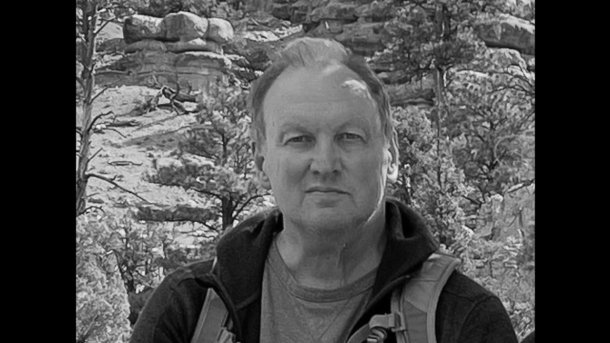BSD veteran: Michael J. Karels died at the age of 68
Michael J. Karels was significantly involved in the open-source BSD Unix, created the BSD license and worked on FreeBSD until the end.

(Image: FreeBSD Foundation)
- Michael Plura
Michael J. Karels was studying molecular biology at the University of California, Berkeley, when he first came into contact with BSD (Berkeley Software Distribution). The laboratory in which he worked had two areas: One was researching the genetics of bacteria, where he says the high-tech equipment consisted of toothpicks and petri dishes. In the second area, he analyzed a part of the bacterial gene that represented the building instructions for a specific enzyme. There were many technical devices and also a PDP 11/40, which was responsible for data collection and analysis.
Unix V6/V7: Jumping in at the deep end
This machine ran a Sixth Edition Unix (V6 Unix) with some extensions from 2.8BSD and 2.9BSD. The PDP11/40 aroused his interest, and he wrote a Fortran program for scientific evaluations. At some point, errors occurred on the system, so an employee replaced V6 Unix with version 7 – this employee was Bill Jolitz, who died in March 2022 and who, together with his wife, was instrumental in the development of 386BSD. Unix V7 did not run particularly well on the PDP11/40 and the device drivers for the technical instruments did not work either. Without much prior knowledge, Michael J. Karels familiarized himself with the subject and – with the help of Bill Jolitz – adapted programs and drivers to V7 Unix.
Empfohlener redaktioneller Inhalt
Mit Ihrer Zustimmung wird hier ein externes YouTube-Video (Google Ireland Limited) geladen.
Ich bin damit einverstanden, dass mir externe Inhalte angezeigt werden. Damit können personenbezogene Daten an Drittplattformen (Google Ireland Limited) übermittelt werden. Mehr dazu in unserer Datenschutzerklärung.
Computer Systems Research Group (CSRG)
Professor Bob Fabry from Berkeley acquired a UNIX source code license from AT&T in 1974. Together with colleagues, he began to modify UNIX and marketed this version as Berkeley Software Distribution (BSD). In April 1980, Fabry signed a contract with DARPA to further develop UNIX to meet the special requirements of ARPAnet. With this funding, Fabry founded the Computer Systems Research Group (CSRG).
Michael J. Karels also became an early member of the CSRG and was thus part of the development, in particular, of the TCP stack of BSD. Karels was disturbed by the fact that BSD4.2 contained no reference to a copyright, but many American companies added their copyright after making minor changes. So, together with lawyers, he developed the copyright notice that is known today and is present in every source code file, which was only distributed in this form from 4.3BSD onwards. Over the course of time, FreeBSD, NetBSD, OpenBSD, DragonFly BSD and Sun Solaris, among others, emerged from this.
Change as Chief System Architect to BSDi
In February 1992, Karels moved to BSDi (Berkeley Software Design) and worked on BSD/OS, which for years was the only commercially available BSD-style Unix on an Intel platform. BSDi's software assets were acquired by Wind River in April 2001 and Karels joined Wind River as Principal Technologist for the BSD/OS platform.
Videos by heise
In 2003, Karels joined Secure Computing Corporation as Senior Principal Engineer, which used BSD/OS as the basis for SecureOS. One product in particular was developed there: the Sidewinder firewall, which later became known (and infamous) as McAfee Firewall Enterprise. As the further development of BSD/OS was slowly slowing down, Karels proposed the conversion of SecureOS from BSD/OS to FreeBSD. Over the years, many important developments from this project flowed back to FreeBSD. Karels was officially named a FreeBSD committer in 2017. After his retirement, he continued to work on FreeBSD in his spare time.
Awards, books and lectures
In 1993, the USENIX Association presented a Lifetime Achievement Award (Flame) to the Computer Systems Research Group at the University of California, Berkeley, honoring 180 people, including Karels, who had contributed to the release of 4.4BSD-Lite by the CSRG.
Together with Marshall Kirk McKusick, Michael J. Karels has written several books on "The Design and Implementation of the 4.3BSD UNIX Operating System". Last May, Karels spoke about his career within the BSD ecosystem at the FreeBSD Developer Summit 2023 in Ottawa.
(olb)